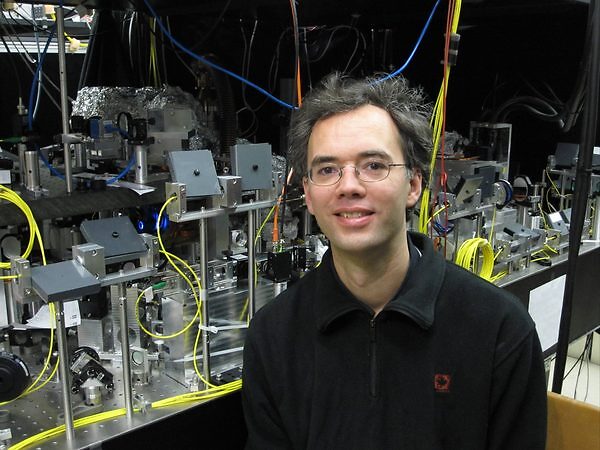Seminar: "Artificial gauge fields in dilute-gas Bose-Einstein condensates: novel experimental studies of quantum dynamics" Prof. Peter Engels

Date
Location
Description
Speaker:
Prof. Peter Engels
Department of Physics and Astronomy
Washington State University (WSU), USA
Title: "Artificial gauge fields in dilute-gas Bose-Einstein condensates: novel experimental studies of quantum dynamics"
Abstract
When atomic vapors are cooled to temperatures near absolute zero, they can become quantum degenerate and display strikingly wave-mechanical behavior. Depending on the quantum statistics of the atoms, the vapors can either form a Bose-Einstein condensate (BEC) or a degenerate Fermi gas. These systems have become one of the most active areas of research in modern physics. They allow for novel studies of quantum dynamics that are relevant for a diverse area of fields, including atomic physics, quantum optics, condensed matter physics, and quantum computation, to name a few. They may also lay the foundation for future generations of sensors and interferometers. In this talk, I present experimental results from my labs that focus on the quantum analog simulation of condensed matter phenomena using BECs. In this context, one apparent difficulty is that the atoms in a BEC are charge neutral, while for condensed matter phenomena the interaction of charged particles with electric or magnetic fields often plays a key role. This difficulty can be overcome by engineering artificial gauge fields in BECs. I present techniques that have been implemented in my labs for the generation of these artificial gauge fields and highlight key results obtained by applying these techniques to problems from condensed matter physics and nonlinear dynamics. Specifically, by exploiting artificial gauge fields we have generated dispersion relations featuring a roton-like minimum and a region of negative effective mass, leading to peculiar quantum hydrodynamic behavior.
Biography
Prof. Engels is a professor of physics at Washington State University (USA). He received his PhD in physics from the University of Hannover, Germany, in 2000. From 2001 to 2004, he worked at JILA / University of Colorado (USA) as a postdoctoral researcher. In the group of Nobel laureate Eric Cornell, he led an experimental program studying large vortex lattices in dilute-gas Bose-Einstein condensates. In 2004, Prof. Engels became a faculty member at Washington State University where he is leading the Fundamental Quantum Physics lab. His research interests focus on quantum physics involving quantum-degenerate gases, including Bose-Einstein condensates and degenerate Fermi gases. Prof. Engels is an APS (American Physical Society) Fellow.
Subscribe to the OIST Calendar: Right-click to download, then open in your calendar application.



